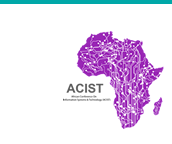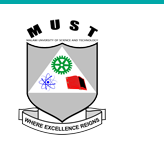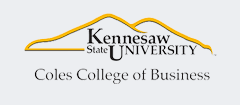Location
Harare, Zimbabwe and Virtual
Start Date
14-9-2023 5:00 PM
End Date
14-9-2023 5:30 PM
Description
The Internet of Things (IoT) space has dual dimensions of affordance to support open educational resources (OER). The duality of affordance has little or not been well articulated in relation to OER, particularly in a Comprehensive open distance e-learning (CODEL) institution. Such an institution is a mega open distance in South Africa and beyond the continent to accommodate students globally and rely on information and communication technology (ICT) in the provision of tuition. In the CODEL institution, there is a recognizable shift as the institution encourages the appropriation of OER and phasing out the prescription of the prescribed textbooks. The research opted for the qualitative approach to establish the role and the causality of IoT affordance in the appropriation of OER. The technology affordance theory has been used as the main theoretical underpinning for this study. The study found that the CODEL institution is IoT driven when handling OER. Furthermore, IoT affordance for OER suggests two propositions as a contribution: CODEL requires to articulate and realignment of its business enterprise system with IoT-driven infrastructure to accommodate tuition using OER; and the IoT-driven context needs to seek possible solutions to adopt artificial intelligence practices for the advancement of OER. In a recommendation for future research, there is a need to investigate the appropriation of OER through IoT affordance in all South African higher education institutions including the contact or traditional universities.
Included in
Online and Distance Education Commons, Systems Science Commons, Technology and Innovation Commons
Internet of Things Affordance for Open Educational Resources in a Comprehensive Open Distance E-learning
Harare, Zimbabwe and Virtual
The Internet of Things (IoT) space has dual dimensions of affordance to support open educational resources (OER). The duality of affordance has little or not been well articulated in relation to OER, particularly in a Comprehensive open distance e-learning (CODEL) institution. Such an institution is a mega open distance in South Africa and beyond the continent to accommodate students globally and rely on information and communication technology (ICT) in the provision of tuition. In the CODEL institution, there is a recognizable shift as the institution encourages the appropriation of OER and phasing out the prescription of the prescribed textbooks. The research opted for the qualitative approach to establish the role and the causality of IoT affordance in the appropriation of OER. The technology affordance theory has been used as the main theoretical underpinning for this study. The study found that the CODEL institution is IoT driven when handling OER. Furthermore, IoT affordance for OER suggests two propositions as a contribution: CODEL requires to articulate and realignment of its business enterprise system with IoT-driven infrastructure to accommodate tuition using OER; and the IoT-driven context needs to seek possible solutions to adopt artificial intelligence practices for the advancement of OER. In a recommendation for future research, there is a need to investigate the appropriation of OER through IoT affordance in all South African higher education institutions including the contact or traditional universities.



